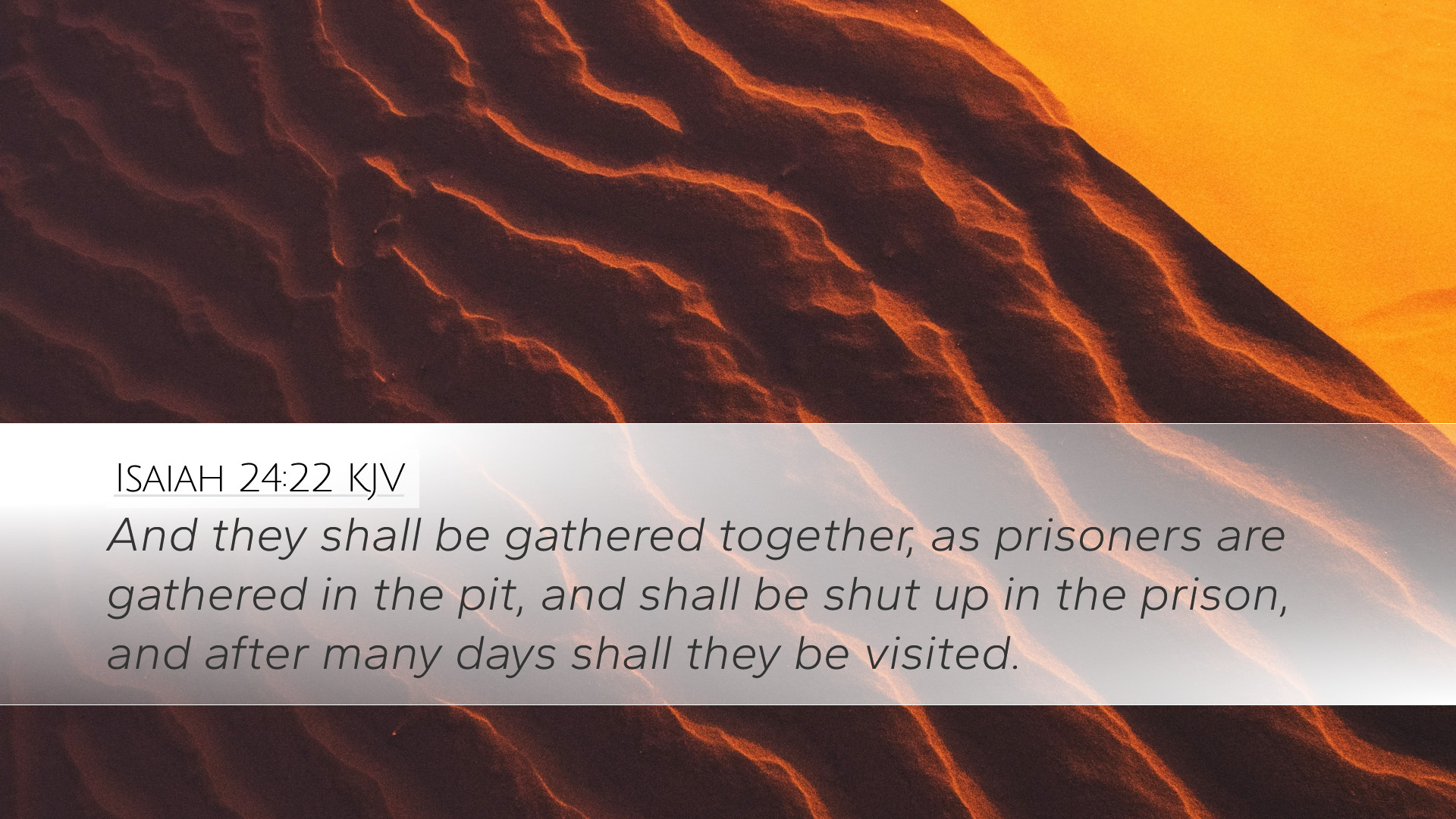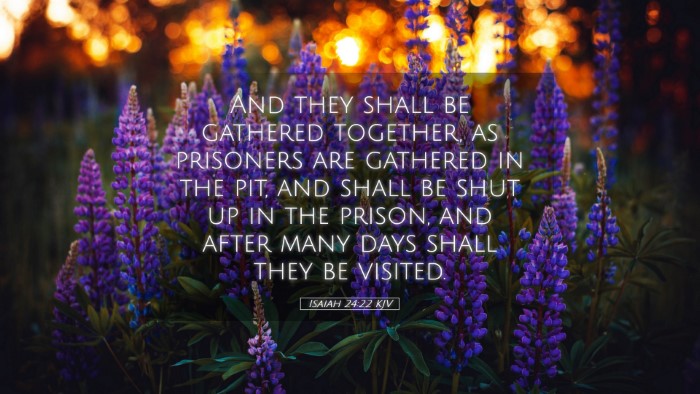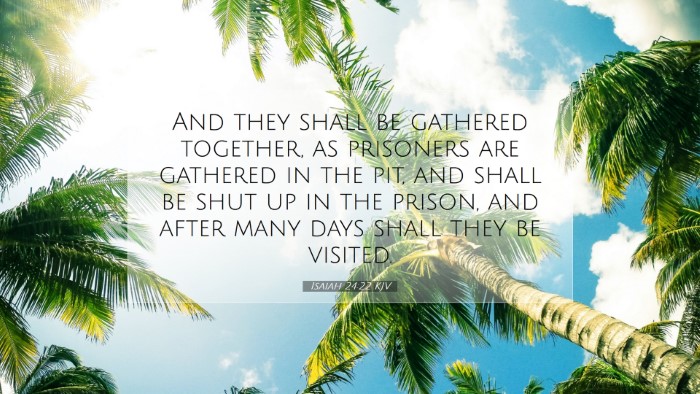Commentary on Isaiah 24:22
Isaiah 24:22 states: "And they shall be gathered together, as prisoners are gathered in the pit, and shall be shut up in the prison, and after many days shall they be visited." This verse encapsulates significant theological themes, reflecting the scene of judgment, captivity, and eventual hope through God's intervention.
Contextual Overview
Isaiah is a complex book filled with prophecies, warnings, and messages of hope. The context of Isaiah 24 is a part of a series of oracles that detail the coming judgment upon the earth, particularly focusing on the nations that have turned away from God. This chapter reveals a cosmic scale of devastation but also subtly introduces the restoration that follows judgment.
The Gathering of the Nations
According to Matthew Henry's Commentary, the imagery of gathering prisoners reflects the fate of the rebellious nations that have opposed God. Gathering “as prisoners are gathered in the pit” signifies a divine judgment that leads to captivity. Henry emphasizes God's sovereignty over all nations, asserting that the rebellious will not escape the consequences of their actions.
Symbolism of the Pit
Albert Barnes expounds on the symbolic implications of the "pit." He correlates it with a place of ruin and despair, indicating that the assembled captives represent both the literal and metaphorical 'lost.' The pit serves not only as a physical entrapment but also as a spiritual state of separation from divine grace.
Spiritual Interpretation
Adam Clarke interprets the pit as a representation of sin and separation from God, portraying how the sinful nature of mankind leads to inevitable consequences. Clarke highlights that this prison metaphorically illustrates the binding power of sin upon humanity, which must be addressed through divine mercy.
Visitation After Captivity
The phrase “after many days shall they be visited” suggests a pivotal transition from judgment to potential restoration. Here, all commentators converge on the notion of hope.
- Henry notes that this visitation indicates God's mercy, signifying that judgment is not the end but a precursor to redemption.
- Barnes emphasizes the notion that God's eventual visit to these captives implies His desire to restore and rehabilitate rather than only to punish.
- Clarke reinforces this by asserting that this 'visitation' encapsulates God's covenant love, indicating that He comes not only to judge but to bring forth deliverance.
Theological Implications
The theological implications of Isaiah 24:22 are profound:
- Judgment and Mercy: This verse presents a comprehensive view of God’s nature—He is both just and merciful, embodying the dual aspects of judgment and eventual redemption.
- Hope in Despair: For pastors and theologians, this scripture encapsulates a crucial theme: even amid overwhelming judgment, God's promise of future visitation provides an anchor of hope.
- Human Condition: It speaks to the condition of humanity, where sin leads to spiritual imprisonment, yet God's sovereign plan permits a path to freedom.
Application for Modern Believers
For contemporary pastors and students of theology, the implications of this verse extend to both personal and communal levels. It challenges the faithful to consider:
- Repentance: Just as nations faced judgment, individual believers are called to examine their lives and turn away from sin.
- Hope in God’s Plan: Understanding that God does not abandon His people, one can cultivate a community that embodies hope and redemption.
- Engagement with Scripture: This passage invites believers to meditate on the transformative power of God's visitation, urging a deeper exploration of biblical truths.
Conclusion
Isaiah 24:22 serves as a reminder of God's ultimate authority and the availability of restoration. Through the combined insights from Matthew Henry, Albert Barnes, and Adam Clarke, we are encouraged to grasp the weight of divine judgment while also celebrating the unyielding promise of God's redemptive love.


